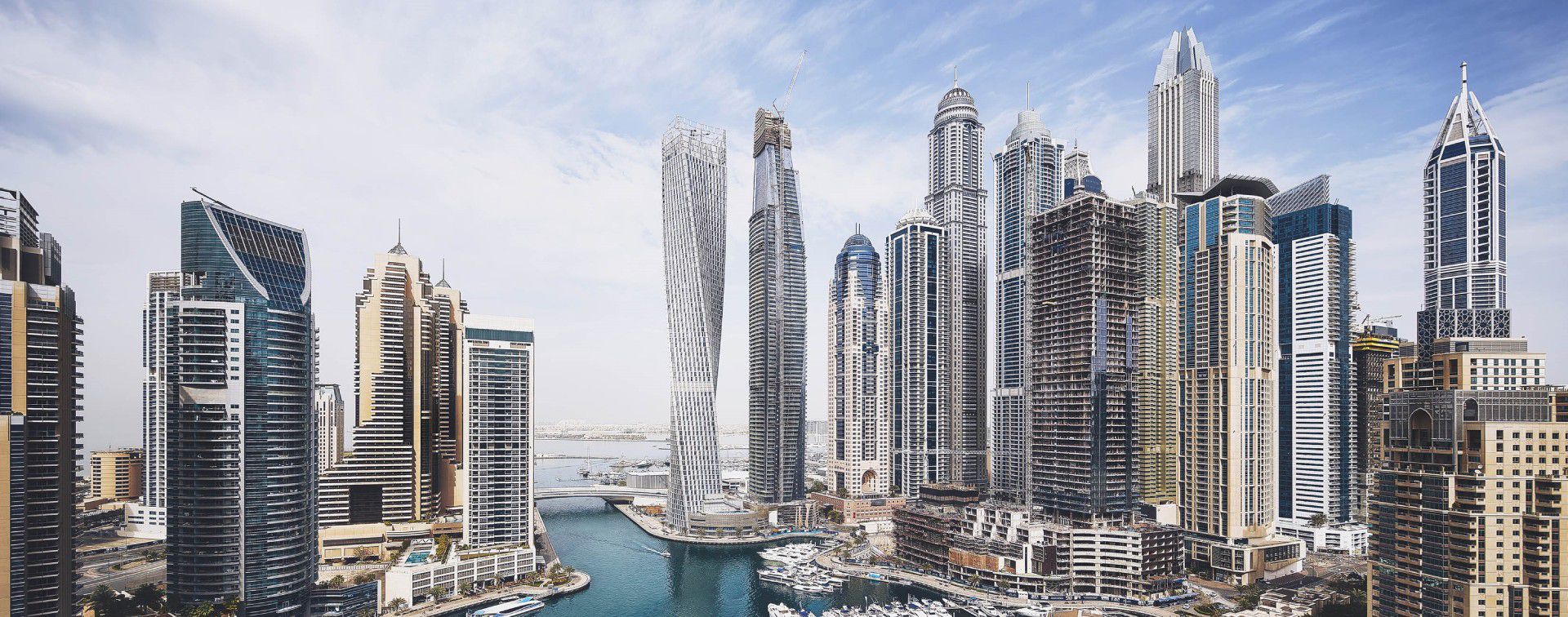
Dr. Robert Mogielnicki is a Resident Scholar at the Arab Gulf States Institute in Washington. He manages the institute’s political economy research and oversees “Next Gen Gulf” – a long-term research series that examines how advanced technologies shape Gulf Arab governments and economies.
The UAE has a small population, a centralized state apparatus, and strong emergency preparedness capabilities. These characteristics enabled a rapid initial response to the coronavirus pandemic through extensive monitoring and detection efforts, and the country’s vaccination rate is among the highest in the world. Close coordination between the UAE’s public and private sectors, as well as the high concentration of government-related entities, has resulted in consistent messaging that the country is a safe destination for global travelers. More than 130,000 Israelis have visited the UAE since the signing of a normalization agreement and initiation of commercial air travel in October 2020. Organizers for the Dubai Expo — initially planned for October 2020 but delayed until October 2021 — hoped to attract 25 million visitors, but that target seems increasingly unlikely.
A desire to support business activities and keep the country open to international visitors has resulted in persistent coronavirus infection rates across the UAE, requiring intermittent coronavirus-related restrictions. Additional uncertainties are weighing on short-term growth prospects. Estimates of population contractions of 8.4% in Dubai and 5% in Abu Dhabi over 2020 were much steeper than the average of 4% in neighboring Gulf Arab countries. However, the Dubai Statistics Center indicated that the emirate’s population actually grew by 1.6%. Whatever the precise figures may be, there are concerns about an expatriate exodus from the country. Governments at the federal and emirate levels have rolled out several long-term visa schemes and a legal pathway to citizenship in an effort to retain and attract the talented expatriates needed for robust economic growth.

After some initial missteps, Turkey’s response to the coronavirus pandemic has been organized and efficient. The country has avoided high death tolls witnessed in the US and many European countries. Turkey’s Health Ministry published a 229-page plan to address potential pandemics in April 2019, potentially permitting the government a head start in preparedness for the health crisis. The central and provincial governments have also required individuals in the country to use a code (the Hayat Eve Sığar (HES) – Life Fits Into Home code), which contains health-related information and enables individuals to share their Covid-19 risk status, when taking public transport and accessing public institutions. Turkey’s large population of approximately 84 million people — around eight times larger than that of the UAE — will make wide-spread vaccination a lengthy process.
Turkey is in a strong position to make a post-coronavirus economic recovery. Having registered an economic growth rate of 1.8% over 2020, Turkey represents one of the few countries globally that avoided an economic contraction last year. The country is an established tourism hub with solid infrastructure and a young, educated workforce. The ease of doing business in the country is gradually improving, and a depreciation of the Turkish lira has increased the attractiveness of Turkish assets. However, the possibility of rapid changes to commercial policies remains a political risk, and previous economic shocks and crises in the country have revealed the fragility of Turkey’s finance and banking sector.
Jordan imposed strict measures to curb the spread of the coronavirus, and the country’s military is central to its response to the pandemic. Yet progress in containing virus will not necessarily enable the Jordanian economy to come roaring back. Jordan’s economy relies heavily upon international grants, other forms of aid, and remittances. As global governments focus on domestic challenges and unemployed Jordanians return from abroad, the primary support structures of Jordan’s economy will be under increasing pressure. Low levels of tourism have further strained the country’s finances, and rampant unemployment and poverty remain persistent features of Jordan’s socio-economic landscape. High concentrations of refugees in crowded camps and poor urban settings increase the risks of further Covid-19 outbreaks. In January 2021, Jordan launched a coronavirus vaccination program for refugees and asylum seekers.
Regional tensions in the Middle East have eased throughout the early months of 2021. A Saudi-led Gulf reconciliation effectively ended a three-year boycott on Qatar, partially reducing the damaging polarization within the Gulf region. The UAE’s reduced involvement in various theaters of conflict, especially in Yemen and Libya, decreases the likelihood of its foreign affairs agenda clashing with that of other regional actors. Turkey and Egypt may sign a maritime demarcation deal in the eastern Mediterranean, despite longstanding tensions in relations between the two sides. Rather than engaging in direct and costly disputes, governments with available resources are jockeying for regional influence in the Covid era.
Abbas, W. “Dubai is Open, Safest City in the World: Top Officials.” Khaleej Times. Galadari Printing and Publishing LLC., March 1, 2021.
Daily Sabah. “Turkey Laid Out Anti-Pandemic Plan 8 Months before Coronavirus Outbreak.” Daily Sabah. Turkuvaz Haberleşme ve Yayıncılık, March 17, 2020.
“DSC: Dubai Population Is 3.4 Million and Hosts 4.4 Million Daily.” DSC. Dubai Statistics Center - Government of Dubai , March 7, 2021.
Gupta, ZS. “Expat Exodus Adds to Gulf Region’s Economic Diversification Challenges.” S&P Global Ratings. S&P Global, February 15, 2021.
Harkov, L. “Israel’s First Ambassador to the UAE Ready for Historic Mission.” The Jerusalem Post. JPost Inc., January 25, 2021.
“HES Travel Code,” UNHCR Turkey. UNHCR. Accessed March 2, 2021.
Mimoune, NB. “Policy and Institutional Responses to COVID-19 in the Middle East and North Africa: Jordan.” Brookings. Brookings, December 16, 2020.
Reuters contributors Butler, D, and Spicer, J. “Volatile Turkish Lira Rebounds 2.5% after GDP Data.” Nasdaq. Nasdaq, Inc., March 1, 2021.
Reuters Staff. “Turkey Says it May Negotiate Maritime Demarcation with Egypt,” Reuters. Thomson Reuters, March 3, 2021.
United Nations. Socio-Economic Framework for COVID-19 Response. United Nations, July 2020.